URBANREC
Decentralized Community Composting: Past, Present and Future Aspects of Italy
Italy is among the top biowaste-generating countries in Europe, and has a well-structured waste management framework with quite a number of centralized composting facilities. In recent years, there has also been huge interest from local communities in decentralized composting. Although decentralized community composting is common in some countries, there is still a lack of information on the operative environment together with its potential logistical, environmental, economic, and social impacts. Considering the national Italian legislation on community composting as well as successfully implemented projects at EU level, Italy can set a model especially for Mediterranean countries that intend to build decentralized composting programs. Therefore, in the context of this review paper, a brief overview of the composting process was presented together with main applications in centralized and especially in decentralized composting, while the main focus was kept on the operative and legislative information gathered from Italian community composting. There is a huge difference in the number of composting plants between the regions, and the lack of centralized facilities in the central and southern regions can be supported by decentralized solutions. Decentralizing waste treatment facilities and thus creating local solutions to urban waste management strategies will help to achieve the resource recovery and valorization targets in line with the circular economy.

» Author: Cecilia Bruni
» Reference: doi: 10.3390/su12083319
» Publication Date: 19/04/2020
» More Information

This project has received funding from the European Union's Horizon 2020 research and innovation program under grant agreement Nº 690103




URBANREC Guidelines by URBANREC Consortium is licensed under a Creative Commons Reconocimiento-NonComercial-NoDerivatives 4.0 Internacional License.
Puede hallar permisos más allá de los concedidos con esta licencia en www.aimplas.net
